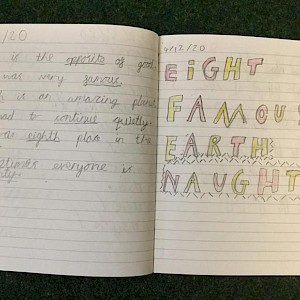
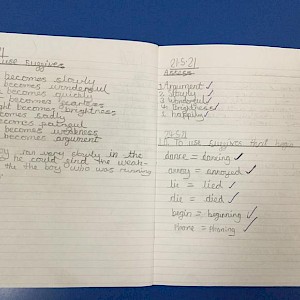
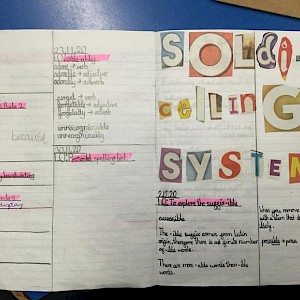
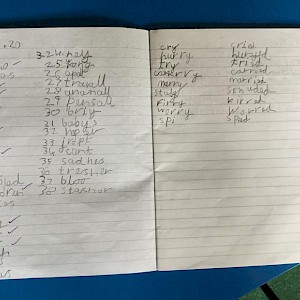

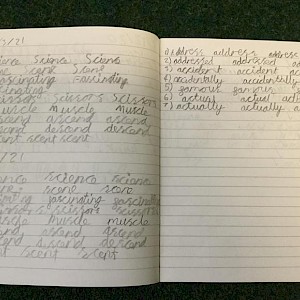

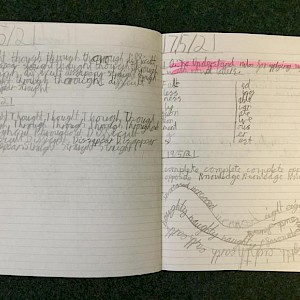
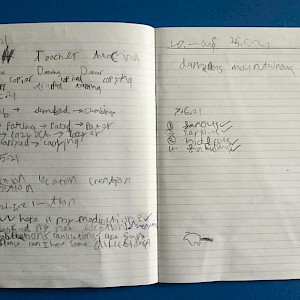
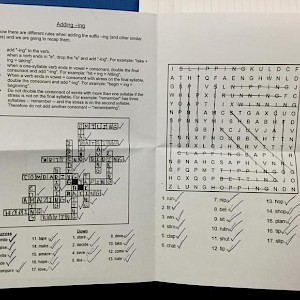
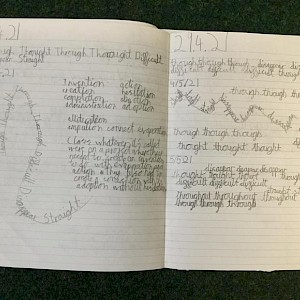
For more, select Curriculum, Subjects, Art &Design.
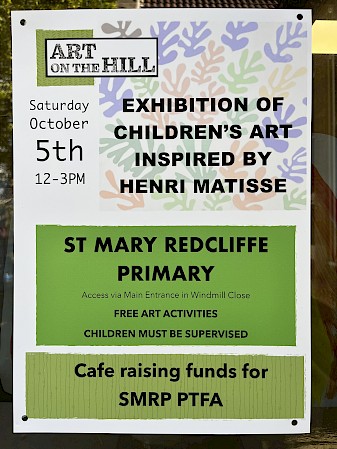
12.11.2024 at 9.45am - 26.11.2024 at 1.30pm
No need to book.











At St Mary Redcliffe Primary School, we believe that a rich and engaging English curriculum is fundamental to our pupils' success, both within our school and beyond. Rooted in our school's values of 'Hope, Empathy, Acceptance, Respect, Thankfulness, and Selflessness', our English curriculum aims to nurture a love of language and literature, empowering our pupils to become confident communicators and creative writers.
Our English curriculum is designed to:
Through our English curriculum, pupils will develop a secure understanding of the core components of language: phonics, grammar, punctuation, and spelling. They will learn to read fluently, with good comprehension, and write with increasing complexity and accuracy. Pupils will also have opportunities to develop their oral communication skills, participating in discussions, presentations, and debates.
Our English curriculum is carefully sequenced to build on pupils' prior knowledge and skills. In the early years, the focus is on developing strong foundations in phonics, language comprehension, and early writing. As pupils progress through Key Stage 1 and 2, they will continue to develop their reading fluency and comprehension, while expanding their repertoire of writing styles and techniques. By the end of Year 6, our pupils will be confident, creative writers who can communicate effectively for a range of purposes and audiences.
The English curriculum at St Mary Redcliffe Primary School is central to our vision of developing well-rounded, engaged learners who are equipped to succeed in their next steps, whether that be in secondary education or in their future careers. By nurturing a love of language and literature, we aim to empower our pupils to become active, informed citizens who can navigate the world with confidence, empathy, and a strong sense of their own identity and values.
We use the Essential Spelling scheme to teach spelling. This begins in year 2, where the scheme builds on from Letters and Sounds phonics. Essential Spelling focuses on the teaching of spelling so that children understand how to apply patterns, strategies and knowledge to other words. It also provides links to prior knowledge and tracks back to related objectives so that teachers can give targeted support to children who are not yet able to spell words from their year group programme of study.
After implementing the new Essential Spelling scheme, the English lead collected the pupils' voice on the new scheme:
"I used to find the lessons a bit bitty, but now they make sense to me as we focus on one rule and perfect it." - Year 4 pupil
"I like how we really explore a rule and look into the word families; it's really helped me notice errors when I'm writing and editing." - Year 6 pupil
"I love spellings now. I love all the ways we get to practise and my teacher makes the rules really clear." - Year 3 pupil
"I spotted a prefix in my science knowledge organiser and my teacher gave me a house point!" - Year 5 pupil
For pupils to:
Handwriting is taught regularly through sessions and may be linked with spelling, grammar or phonics objectives. Teaching occurs outside English lessons. Importantly, shared and guided writing and teachers’ written comments in books also provide additional opportunities for the modelling and monitoring of handwriting. In addition individual teaching and practise time is provided for children who are experiencing difficulties.
If you require paper copies of any information from the website please contact the school office.
To contact us please telephone the school office on 0117 353 4760 between 8:00 - 16:30 or send us an email.
SENCO and Inclusion Lead - Liz Radnor
LizRadnor.SMRP@dbat.org.uk
Chair of the Academy Council - Anthony Couzens
AnthonyCouzens.SMRP@dbat.org.uk
The Diocese of Bristol Academies Trust. Company No. 08156759
First Floor Hillside House, 1500 Parkway North, Stoke Gifford, Bristol, BS34 8YU
Sorry there is no parking at school on Windmill Close. Please park safely on local roads; Whitehouse Street and other near by roads are for permit holders only.
Parking around Victoria Park is best; it is only a quick walk through the park to the front of school.
Copyright St Mary Redcliffe Church of England Primary School © 2024 - Website by Warp Design & Thinking Creative